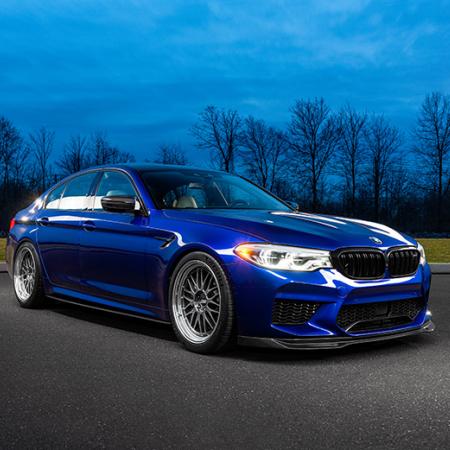BMW and other luxury-automobile brands are not off to a great start in 2016 U.S. sales. As a result, dealers are sitting on more inventory, which isn't helping the bottom line.
The laws of supply and demand may be in play in the U.S. premium-car market; dealership giant Group 1, for example, says that many of its BMW, Mercedes-Benz, and Audi dealerships have up to a 90-day supply of vehicles on hand—which is way more than they need.
Slow first-quarter sales and a shift in inventory from China to the U.S. have contributed to the overstocks at BMW dealerships. BMW experienced a sales slump in China last year, which is what precipitated the movement of more vehicles to the U.S. market.
“We are adjusting our production plans and reallocating more SUVs to the U.S.,” said BMW Group’s Chief Financial Officer Friedrich Eichiner in a conference call last week. He also reiterated BMW’s plans to increase the percentage of light trucks—X vehicles—from 33 percent of sales in 2015 to 40 percent of sales this year. “The fourth quarter was not as strong as expected, and we took a decision early on to clean up inventories to prepare for maybe a flatter market,” reported Eichiner, “That is what we are doing, and we think it should come to an end in the second quarter.”
BMW’s Spartanburg, South Carolina plant is the company’s largest factory worldwide. It makes only X3, X4, X5, and X6 vehicles. Later this year, when its latest billion-dollar expansion is complete, it will have the capacity to produce 450,000 vehicles annually, including the new BMW X7. The X7 will be larger than the X5 and will be available as a normal Sports Activity Vehicle or a super-luxurious crossover. BMW is counting on it to boost sales.
Overall, the premium automobile sector in the U.S. declined during the first quarter of 2016. Automotive News reported that BMW of North America spokesperson Alexander Bilgeri wrote, “Affluent customers generally ride out recessions okay, but specific market volatilities can directly affect the premium vehicle market, and that's what we're experiencing right now.”
Officially, BMW is predicting a stronger second half of 2016. By then, the company and its dealers hope that overstocked models should be sold.
The information released by BMW concerning dealer surplus inventory did not mention an earlier announcement that some 2016 BMW 7 Series may be at dealers under a stop sale order because of potentially defective airbags. Those cars will remain in inventory until Continental provides new airbags to replace ones that may fail to deploy.
Even though BMW is predicting an increase in sales worldwide in 2016, it might be a rocky road ahead for some U.S. dealers that may have to take drastic measures to move inventory. Whether that provides an unintended benefit for buyers looking for bargains on new BMWs remains to be seen.—Scott Blazey
[Photos courtesy of BMW AG.]












